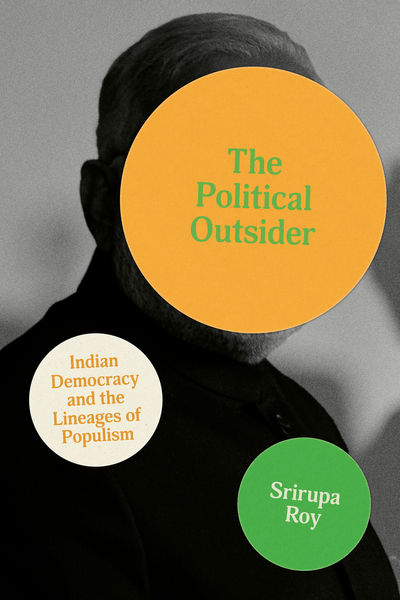
March 2024
374 pages.
from $35.00
Paperback now $17.50 (50% off)
Hardcover ISBN: 9781503636460
Paperback ISBN: 9781503637986
Ebook ISBN: 9781503637993
Defying the dire predictions that attended its birth as an independent nation-state in 1947, the Indian republic is more than seventy-five years old. And yet, it is a place where criticisms of actually existing democracy are intense and strident. In recent years, the trope of victimized people suffering at the hands of a predatory elite and political dysfunction has reaped rewards. The populist language of redemptive outsiders pledging to combat a corrupt system has been harnessed in successful electoral campaigns, like the majoritarian regime of Narendra Modi.
Tracking the shift from postcolonial nation-building to democracy-rebuilding, Srirupa Roy shows how the political outsider came to be a valorized figure of late-twentieth century Indian democracy, tasked with the urgent mission of curing a broken democratic system—what Roy terms "curative democracy." Drawing attention to an ambivalent political field that folds together authoritarian and democratic forms and ideas, Roy argues that the long 1970s were a crucial turning point in Indian politics, when democracy was suspended by the declaration of a national emergency and then subsequently restored. By tracing the crooked line that connects the ideals of curative democracy and the political outsider to the populist antipolitics and strongman authoritarian rule in present times, this book revisits democracy from India, and asks what the Indian experience tells us about the trajectory of global democratic politics.
About the author
Srirupa Roy is Professor and Chair of State and Democracy at the Centre for Modern Indian Studies at the University of Göttingen.
"In this bold, creative, and beautifully written book, Roy challenges the notion that populism represents an aberration of democracy and traces its lineage to authoritarian strains in what she terms curative democracy in India since the 1970s. The Political Outsider is a brilliant addition to the literature on populism in India and in many other parts of the world."
—Amrita Basu, Amherst College
"This excellent book presents an interesting and original interpretation of the rise of populism through the historical course of Indian democracy. It is written with clarity and verve and adds significantly to our understanding of Indian democracy as well as the theoretical discussion of the rise of populism."
—Sudipta Kaviraj, Columbia University